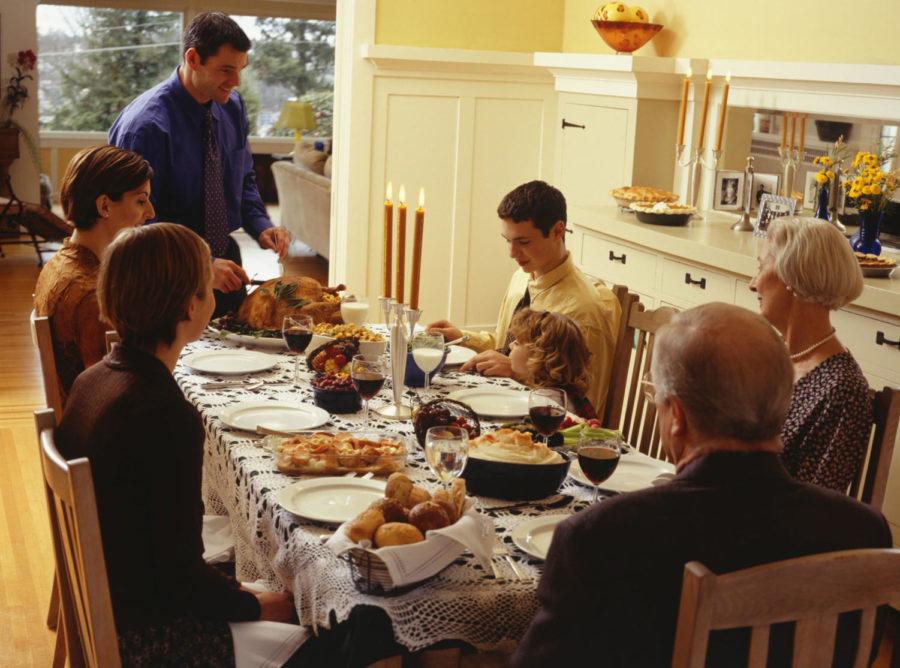Bruning: Is it really necessary to rethink Thanksgiving?
Family carving thanksgiving dinner
November 22, 2011
Despite the overwhelming push by retailers to make us think ahead to Christmas, I’m sure that anyone reading this is very well aware that Thanksgiving is this week. It will be a day filled with food, family and football for many people in the U.S.
For me, it is a day that represents my family coming from across Iowa to my grandmother’s house to gather around her table that seats 26 people and the additional kids’ table in the kitchen. It is a day that we celebrate the fall birthdays of my cousins and indulge in my grandma’s amazing cooking and my mom’s plethora of pies. And it is a day that brings the cousins together for a game of football in the front yard, ping pong, pool and foosball tournaments, and the always competitive Apples to Apples game.
Nowhere in this celebration do we mention pilgrims, Native Americans or the travesties committed against the Native Americans because of the entire movement.
Last week I noticed a sign at the Margaret Sloss Women’s Center that advertised a discussion entitled “Rethinking Thanksgiving.” Thinking back to what Thanksgiving means to me, I was a bit offended by this advertisement. Sadly, I was unable to attend the discussion due to class. However, it did bring up some questions to consider.
Growing up on a farm, Thanksgiving is much more representative of the harvest and family coming together than any celebration of pilgrims discovering the “new world,” and I’m sure that it is true for many other students at Iowa State.
While we are taught in elementary school that the Indians and pilgrims sat together to share a meal and give thanks, many of us know that it wasn’t quite this peaceful and eventually led to the colonists taking over the land on which they found themselves and infecting the natives with diseases.
I will not disagree that the curriculum we see in our schools should not be altered to more accurately reflect the true events of history. However, I also don’t think that we should cheapen a day of which the modern purpose is less about history and more about family. Especially when family and human interaction continues to lose value in our society.
But I do have the confidence in the intelligence of our student population to come to the conclusion themselves that dressing up in paper bags and black hats is something that we leave behind in elementary school and we can begin to develop our own significance for the day.
For once, maybe we don’t need the public interfering with a private celebration to be shared among families not dissected in classrooms. Take a moment to celebrate the simplicity of spending time and sharing a meal together instead of delving into the dark and sad happenings of the past. Those things can be addressed in our history classes, not at our family tables. So for now, celebrate, give thanks and appreciate the present.

















